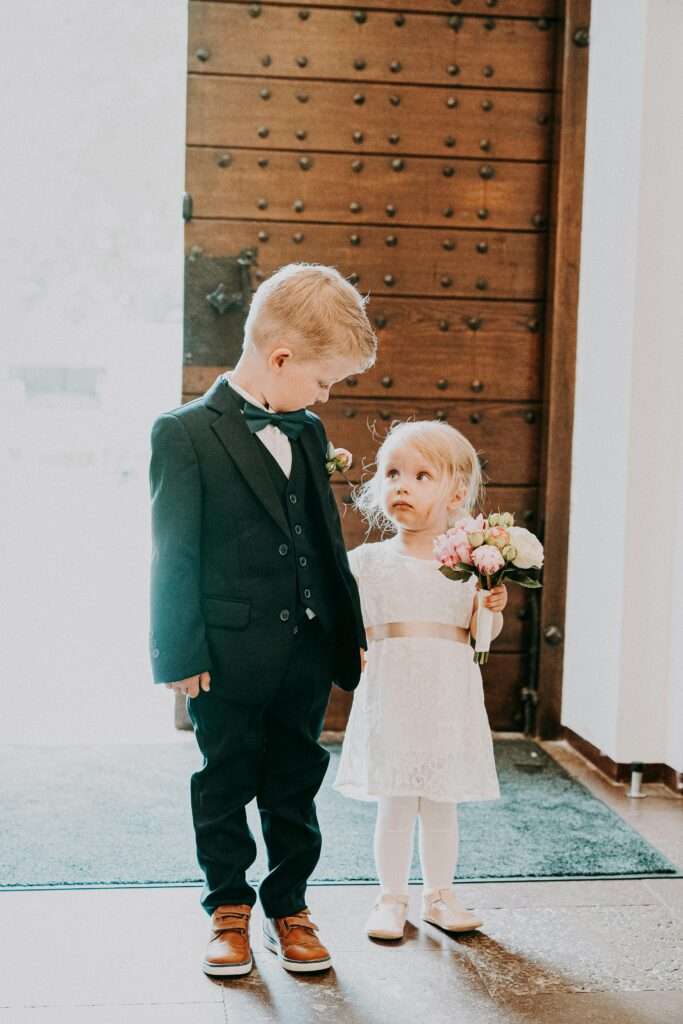Contact
Get In Touch

Author
Abdul Azeem
LLB (Hons) LLM
Child Marriages in Pakistan
This article discusses Child marriage in Pakistan and not the legal nikkah service.
Child marriage is a serious human rights violation that has devastating consequences for girls. Child brides are often forced into sexual activity and are at increased risk of experiencing intimate partner violence. They also face greater obstacles to completing their education and achieving economic self-sufficiency. As a result, child marriage disproportionately affects girls’ health, education, and overall well-being.
In addition to the individual risks faced by child brides, child marriage also has negative consequences for society as a whole. Child marriage contributes to intergenerational cycles of poverty and poor health and reinforces gender inequality. It also undermines national efforts to end child labor and promote girls’ education.
Child marriage is a global problem that occurs in both developed and developing countries. According to UNICEF, an estimated 12 million girls under the age of 18 are married each year.
While child marriage affects both boys and girls, the vast majority of child brides are girls. Girls who marry as children are often forced into the role of wife and mother before they are physically or emotionally ready. This can have serious consequences for their health and well-being.
Pregnant teenagers face a higher risk of complications during pregnancy and childbirth, which can lead to maternal death. Young mothers are also more likely to experience post-traumatic stress disorder, depression, and anxiety.
In addition, child marriage often prevents girls from completing their education. The lack of education can have a lifelong impact on their economic opportunities and empowerment.

Reasons for Child Marriages in Pakistan.
According to UN Women, Pakistan has the 6th highest number of girls married before the age of 18 in the world. Additionally, 21% of Pakistani girls are married by the age of 18, and 3 percent before 15, according to UNICEF.
There are many reasons why child marriages occur in Pakistan. One of the most common reasons is poverty. Families struggling to make ends meet may see marriage as a way to reduce their financial burden. Sometimes, girls are married off to older men to pay off debts or settle disputes.
Exploitation is also a major factor. Young girls are often seen as easy targets for sexual predators. In some cases, girls are kidnapped and forced into marriage.
There are also cultural pressures that lead to child marriages in Pakistan. In some cultures, it is believed that girls should be married off before they reach puberty to protect their chastity. Additionally, some families believe that child marriage will help to preserve the family’s honor.
Social pressure is another reason. The truth of the matter is that many Pakistanis still have a strong preference for sons over daughters. This often leads families to marry off their daughters at a young age to get rid of them. Additionally, girls who are not married by a certain age may be considered to be a burden on their families.
Lastly, false beliefs and cultural rhetoric can also lead to child marriages. In Pakistan, many people believe that girls should marry young as they’re “easy to be moulded.” This belief is often used to justify the practice of child marriages.
What Does the Pakistani Law Say About Child Marriages?
Laws Currently Applied in Each Province
In 2014, the Sindh Assembly approved the Sindh Child Marriage Restraint Act, which states that the legal minimum age of marriage for boys and girls is 18 years.
In 2015, Punjab amended the Child Marriage Restraint Ordinance 1971 and passed the Punjab Marriage Restraint Act 2015. It didn’t increase the legal age of marriage but increased the fines and imprisonment. The legal age of marriage in Punjab is 16 years.
In 2016, the Khyber Pakhtunkhwa assembly failed to pass the Khyber Pakhtunkhwa Child Marriage Restraint Bill 2014, which would have ensured that the legal age of marriage in the province is 18 years.
Balochistan continues to be governed by the Child Marriage Restraint Act 1929.
Prohibition of Forced Marriages – PPC 498B
The Act says, “Whoever coerces or in any manner whatsoever compels a woman to enter into marriage shall be punished with imprisonment of description for a term, which may not be less than three years and shall also be liable to a fine of 500,000 Rupees.”
Child Marriage Restraint Act 1929
The Act extends to the whole of Pakistan and prohibits the marriage of any male under eighteen years of age and any female under sixteen years of age. It also makes it an offense to perform, solemnize, or facilitate such a marriage. In either of these cases, the offenders can be fined 50,000 rupees and imprisoned for up to 6 months. Several amendments have been made to the Act.
How Can Underage Marriages Be Prevented in Pakistan?
There are many ways in which child marriages can be prevented in Pakistan. One way is by increasing awareness of the harmful effects of child marriage. This can be done through education and public awareness campaigns.
Another way to prevent child marriages is by working with families and communities to change social norms around child marriage. This can be done through community mobilization and engagement, as well as support for legal and policy reform.
In addition, it is crucial to ensure that girls have access to quality education and economic opportunities. When girls are educated and have options for their future, they are less likely to be married off at a young age. Finally, it is critical to provide support to girls who are at risk of or affected by child marriage. This includes access to social and legal services, as well as protection from violence.
How to Get in Touch with Our Online Lawyers in Pakistan
Our panel of skilled Lawyers in Pakistan can offer personalized advice and robust legal solutions.
- AI Legal Site: For general information, visit 24Justice.com – Pakistan’s First Legal AI Site.
- Personalized Assistance: For more specific queries or legal representation, reach out to us:
- Call: 92 308 5510031
- WhatsApp: 0092 308 5510031
We Help You Solve Your Legal Issues
At 24Justice, we believe that everyone deserves access to justice, and we are committed to making that belief a reality. Choose 24Justice, and take the first step towards navigating your legal journey with confidence and ease.
